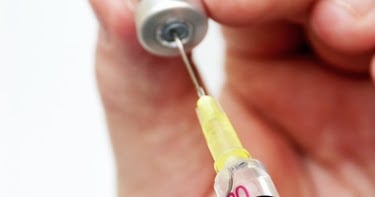PatternKing/Shutterstock A meta-analysis of data on 4,396 subjects with schizophrenia and 745,000...
Study Finds Low Zinc Levels Associated With Depression
 |
What the results mean from a clinical viewpoint, however, remains to be determined, the researchers point out. Since the literature on zinc and depression is largely limited to case-control and cross-sectional studies, it is not known whether depression creates a zinc deficiency or a zinc deficiency helps set the stage for depression. Zinc is an essential nutrient with multiple biological functions.
It is possible that depression creates a zinc deficiency, the researchers suggest, since appetite changes are a common component of major depression. One study of subjects with the disorder identified trends between lower zinc concentrations and weight loss and anorexia symptoms. On the other hand, a zinc deficiency can induce depressive-like behaviors in animals, which in turn can be reversed by zinc supplements, the researchers point out. Thus "the potential benefits of zinc supplementation in depressed patients warrant further investigation," they note.
A comprehensive overview of depression and how to offer optimal care to depressed patients can be found in the new American Psychiatric Publishing book, Clinical Guide to Depression and Bipolar Disorder: Findings From the Collaborative Depression Study. For more on treating depression, see Treatment-Resistant Depression: A Roadmap for Effective Care.
(Image: Andrei Marincas/Shutterstock.com)





